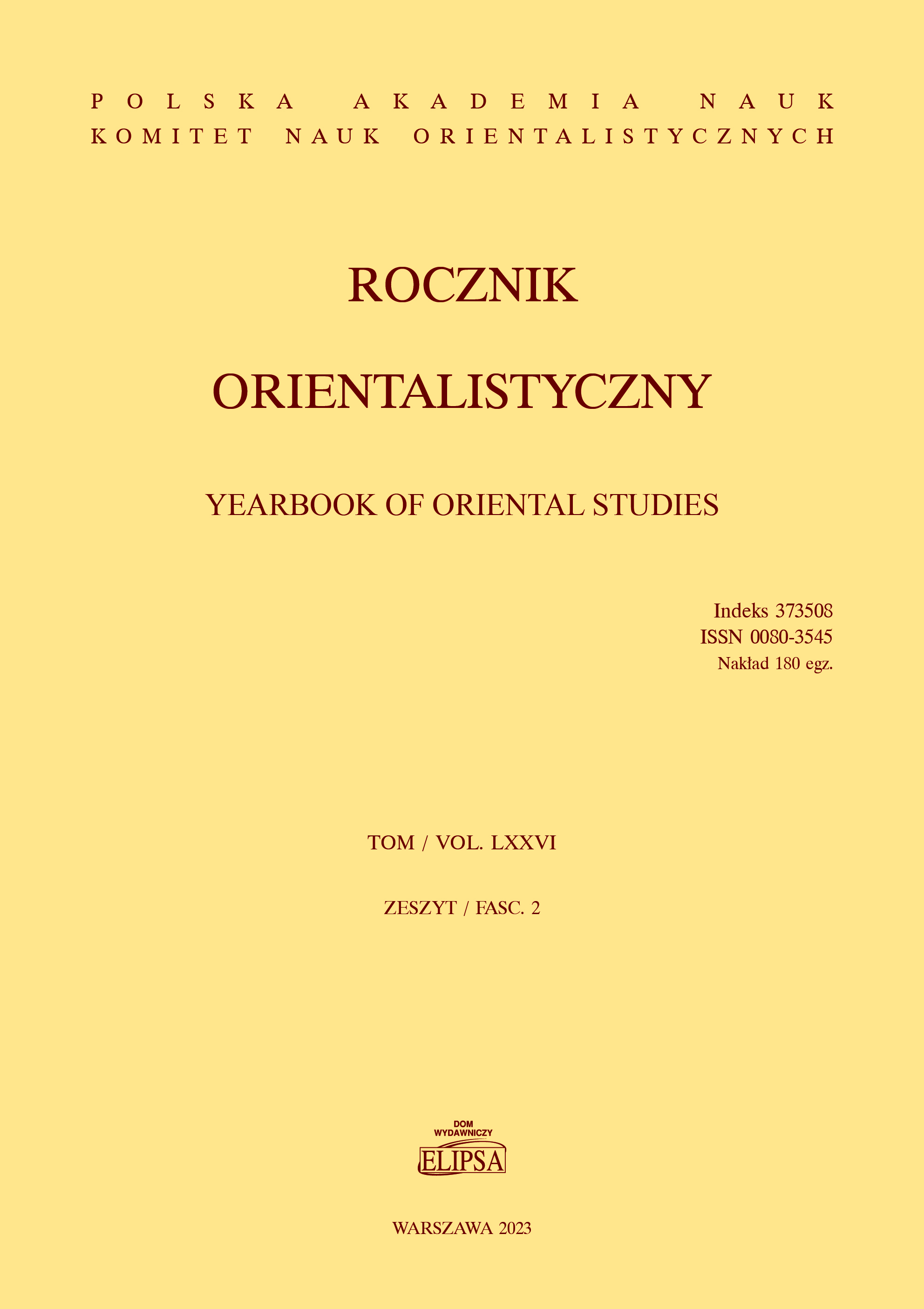Lunar constellations (nakṣatras) and name giving tradition in ancient India
Lunar constellations (nakṣatras) and name giving tradition in ancient India
Author(s): Audrius BeinoriusSubject(s): Language and Literature Studies, Applied Linguistics, Theology and Religion
Published by: Komitet Nauk Orientalistycznych Polskiej Akademii Nauk
Keywords: India; person’s name; Vedic religion; lunar constellations; home rituals; astronomy; initiation; calendar
Summary/Abstract: The present paper examines the textual evidence, mainly the late Vedic codifications of the domestic rituals Gṛhya sūtras and Hindu religious and legal duties Dharma śāstras, related to the name giving tradition in ancient India. Issues are addressed: why according to tradition a brāhmaṇa should have two names, and why one of these names should be the nakṣatra (lunar constellation) name? How the secret (guhya) stellar name was chosen? How name giving practices are related to the concept of the sacred speech in Indian religious culture? The historical and textual analysis of the Sanskrit sources, besides of the historical approach to religious studies shall be applied as the principal methodological tools. Conclusion is made that the Indian name derived from the nakṣatra was vitally connected with the of the individual and his super-personal power lying behind, and kept secret less enemies may do mischief to the man through it. The adoption of a second, secret name was assumed also for success and distinction in life.
Journal: Rocznik Orientalistyczny
- Issue Year: 76/2023
- Issue No: 2
- Page Range: 5-19
- Page Count: 15
- Language: English

